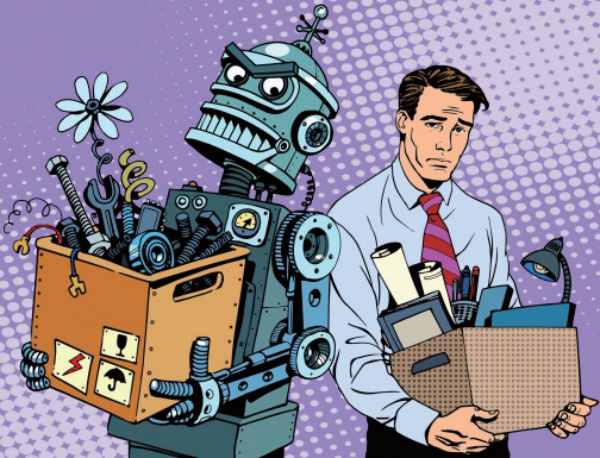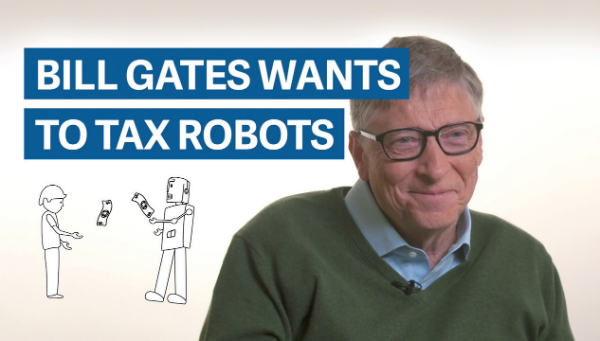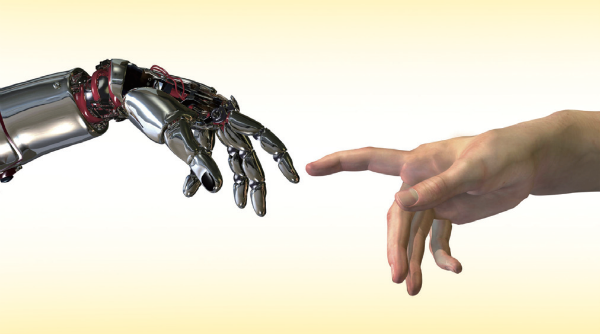Even until the early 2000s, when teachers required children to draw pictures of the far future, they usually imagined robots working in households and drew that. Robot workers nowadays, however, are not fantasy anymore. They have become reality and they are even replacing human workers at an extremely fast pace. Threat derived from highly developed robots makes people afraid and it consequently raises the issue of robot tax introduction. The Sungkyun Times (SKT) now informs Kingos about the birth of robot tax, the controversy surrounding it, and the social effects that it brings along with the discussion about robot tax in Korea.
What Is Robot Tax?
Definition and Birth of Robot Tax
Robot tax is a tax imposed based on the economic value that robots gain through labor. Because there are not accurate standards now, it is defined as a tax imposed on robots or on the owners of robots. Robot tax is divided into three parts. These are income tax related to the income of robots, property tax for robots’ property, and value added tax. The payment of property tax and value added tax is valid under the premise that humans possess robots, while income tax can be acknowledged only if a tax payer has a personality. Robot tax emerged from the claim that extra public finances are needed to prepare for increasing unemployment because of the robot introduction in our daily lives. The movement toward robot tax is referred to as the second Luddite Movement, a campaign which was held in the 19th century in England, designed to destroy machines. Although there is no accurate standard yet, the tax may be imposed based on the cost of individual robots and the number of robots possessed. The term ‘robot tax’ emerged first in 1994, in Argentina. At the time, President Carlos Saul Menem announced that he would consider robot tax for unemployment insurance and technical training subsidies for the unemployed as the unemployment rate increased due to the introduction of improved technology. Robot tax, however, was regarded as a ridiculous idea at the time and it was even presented as ‘robot tax gossip’ in some articles. This is because it was impossible to imagine that robots could replace most of the human work in lives. The position of robots, however, is growing in status.

Realization of Robot Tax Following Technological Development and Change in Labor Market
The era of the robot comes as a result of highly developed technologies. The World Economic Forum held last year chose robots as the main factor for the Fourth Industrial Revolution which is a next-generation industrial revolution resulting from the convergence of information and communication technology, along with the mention that a “one household, one robot” generation will come soon. The areas replaced by robots are expected to expand, exceeding simple machine dimensions by reaching the level of implementing tasks on their own will. Therefore, a big change will occur in the labor market. In some nations like Japan and America, robot clerks are already employed in unmanned marts and fast food stores. Furthermore, there are even Artificial Intelligence (AI) robots which operate in hospitals and recently a robot lawyer has started to judge in a real court as a formal agent. According to the World Economic Forum report in 2016, more than five million occupations worldwide will disappear by 2020 as a result of the Fourth Industrial Revolution progressing. Additionally, the Korea Employment Information Service (KEIS) predicts that 61% of employees in Korea will be replaced by Artificial Intelligence robots by 2025. The reason is that, although the wage of human workers is continuously increasing, the cost of robots is decreasing by 10% annually. Thus, the rate of hiring robot workers is increasing. As the hypothesis that robots can threaten human jobs becomes reality, the claim that the government should impose tax on robots is becoming more important but it is still veiled in controversy.
Controversies Surrounding Robot Tax
As the French presidential candidate Benoit Hamon ran for the election with the pledge of collecting robot tax, it became a much hotter topic worldwide.
Pros.
“From the revenue made by robot tax, we should help vulnerable social groups, the unemployed and low-income households.”
The founder of Microsoft, Bill Gates, has said that robot tax is needed to prevent humans from falling further into unemployment. He added that the companies using robots should pay robot tax and the tax must be used to financially support the other types of employment means. He also talked about the additional support which includes re-education for the unemployed and occupational readjustment to help low-income workers. Furthermore, he claimed that workers who take care of the elderly or spend time with children in school should get much more support financially. Finally, he emphasized that the government should be the main agent rather than enterprise, in the development of these programs.
Other advocates insisted that the robot tax can also be used as the basis of a basic income system and then reduce the tax burden ratio of both low-income households and middle-class households. It would be possible since tax needed for another part such as social welfare can be covered to some extent by the robot tax collection.

Cons.
‘Robot Tax Will Block Robot Development, Take Human Jobs, and Bring Resistance of the Robot Owners.’
The International Federation of Robotics (IFR), companies, and the robot industry are worried about robot tax introduction. They claimed that the idea of paying robot tax will definitely bring negative effects to the competitiveness and development of the robot industry. Additionally, they also said that the use of robots would rather create new jobs for humans, increasing productivity. For example, in the case of the German automobile industry, there is a correlation between robot density and employment. In other words, there are some minute parts that the robots cannot assemble, and therefore human input is a necessity. James Bessen, a prominent economist at Boston University, also disputed the claim that machines could take up all human jobs. In addition, he clarified that the development of the IT industry has contributed to an employment increase. As above, the opponents toward robot tax claim that the robot tax rather disrupts the increase of jobs and deprives economic opportunities for many people.
Last month, in February, the European Parliament made an important decision in passing an act which gives legal status to robots as “electronic humans”. After that decision, however, on February 17th, the European Parliament adopted resolutions opposed to the robot tax. Some say that the European Parliament made an error in that it regarded the robots as humans but did not impose income tax. According to the European Parliament, however, the reason it opposed robot tax was ultimately due to the possibility of imposing income tax on the owner or the manufacturer of robots. They were worried that the owner and manufacturers of robots would strongly resist and robot tax will influence robot consumption in a negative way. Therefore, although the European Parliament submitted its opposition resolution on robot tax, controversy toward robot tax in Europe will continue because of the paradoxical decision.
Philosophical
‘Can robots be regarded as human beings?’
Regardless of the pros and cons, philosophical consideration about regarding robots as human beings and imposing the tax is becoming a crucial part of robot tax. Property tax and value added tax seems possible toward the owners of robots. For example, in the case of a vending machine, the location which the machine placed is acknowledged as a place of business and the owner of it pays the value added tax depending on the business registration number imposed on each individual. The problem, however, is income tax. To apply income tax to robots, two qualifications should be satisfied. Firstly, the behavior of robots must be independent, namely, they should do economic activities under their own responsibilities. Secondly, the activities should be continuous and repetitive. In other words, personality should be equipped with robots to apply the income tax. If personality is set, then the robots may deposit the income earned through labor into the bank themselves and use it as occasion demands regardless of the owner's intention. Furthermore, if robots do the production activities and pay taxes, their rights should also be acknowledged. For instance, intellectual property rights can be applied to the robot's behavior such as drawing or composing. These things are, however, implemented under the premise that robots have the same status as human beings, so enough discussion is needed not only on tax but also on other fields such as philosophy, religion, and humanities.
Robot Tax in Korea, and Its Effects
In 2016, Korea ranked second place in using robots by having 40,000 robots in industrial fields, following China which took first place. Therefore, Korea has started to discuss robot tax introduction.
Reaction in Korea toward Robot Tax
Agenda 2050, a congressional legislative study meeting, positively examined machine tax toward AI robots and mechanical equipment which replaced humans in the labor market in June 2016. The congressman Kim Se-Yeon suggested the concrete opinion that the standard of imposing the tax should be the capacity unit of robots’ central processing units. Robot tax introduction was actively discussed at both national and local government levels. On the other hand, there is some opposition toward robot tax too. Although it is a fact that Korea uses many robots in industry, many of them are imported. According to the robot industry survey, the import cost increased 38% compared to last year. Conversely, Hyundai Heavy Industries Corporation, Korea's biggest industrial robot enterprise, receives an extremely low income and is losing its position even in Korea.
Social Effects Robot Tax Will Bring
The problem of who should take responsibility for paying robot tax is an important issue. If government imposes tax on robot owners, then they can give up the payment and pass it over to the producer of robots in cases where their benefit is uncertain. Additionally, because most imported robots have a control agency overseas, the matter of who should pay the tax also exists. If nobody wants to possess robots because of these problems, most people will try to borrow robots and this will lead to the result of having only producers in the robot industry. Meanwhile, if humans regard robots as human beings and impose income tax, related laws to protect insurance and fundamental rights will also be equipped. In addition, if transparent robot tax is guaranteed, then the tax burden ratio of vulnerable social groups will decrease and it will lead to a more desirable way, preventing wealth polarization. People should keep in mind that technological innovation can change not only the productivity but also the whole social structure. The most important thing is not to be divided into pros and cons, but to make the adequate resolutions after enough consideration.

Robot tax introduction seems difficult to implement immediately because of the endless controversies surrounding it. Although the superficial purpose of robot tax is to help vulnerable social groups, another intention might also be included. Some doubt that the government's essential aim of robot tax is to collect more tax revenue. No matter whether this rumor is true or not, robot tax should go through enough discussion in the various fields.
